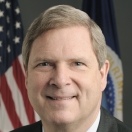
I have seen the consequences of a health care system in need of reform – too few insured, too costly for others and too little quality for all. Unsustainable growth in the cost of health care and the continued denial of coverage to millions of Americans is evidence that our health care system has failed.
These failings are amplified in rural America, where folks pay more for health care than their urban counterparts, but are still more likely to experience chronic illness and poor health. I applaud the National Farmers Union for their recent endorsement of the U.S. Senate's health care reform bill and their prior support of the House’s bill. Their support of the legislation and thier courage in this critical debate says a great deal about the need for reform and the consequences for rural America if we do not get it.
Consider the following statistics:
- Rural Americans pay 39% of their total health care costs, out of pocket – the highest percentage for all Americans.
- Almost one in four Americans living in towns with less than 2,500 people have no health insurance coverage.
- Rural Americans are more likely than their urban counterparts to postpone or forego medical care because of the cost – 9% say they delayed care and 7% skipped treatment.
- Approximately 80% of Rural Americans are self-employed or work for a small business – two groups greatly impacted by the rising cost of health care premiums.
- Rural residents are more likely to report fair to poor health status than urban residents, have a higher mortality rate and are more likely to have a chronic condition.
For more information, check out this recent report detailing how health insurance reform will impact rural America.
These numbers aren’t just statistics – they tell the real story about the health and well-being of rural Americans. When high costs or lack of insurance deters someone from seeking needed health care, illnesses go undiagnosed and long term costs increase.
Soaring health care costs are also hurting rural economies and businesses. Small businesses create most new jobs in rural America, but they are at a disadvantage in our current health care system, paying up to 18% more per worker than large firms for the same health insurance policy. And over the last 16 years the number of small businesses offering health care has dropped to less than 40%. We can overcome this by creating a new insurance exchange where individuals and small businesses will have greater leverage to bargain for better prices and quality coverage.
The debate we are having is a good one and it will result in legislation more beneficial to the American people. But we cannot forget - we have been debating health care reform since Harry Truman was President and the status quo is unsustainable. We must seize the unprecedented opportunity for reform that will improve the health care security and stability that Americans value, strengthen our economy and maintain the character of our rural communities for decades to come. The time is now. Rural America can’t wait any longer.
Tom Vilsack is Secretary of the Department of Agriculture


